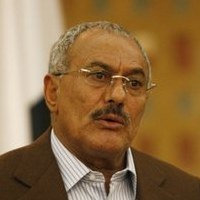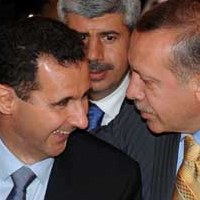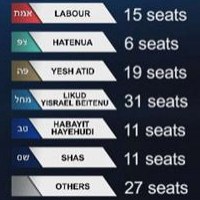![]()
Mon, Oct 24, 2011 | Rubin Reports | By Barry Rubin
Will Libya Be A Radical Islamist State?
This article is modified by Barry Rubin from his piece in the Daily Caller based on new information.
During the Cold War’s early years of the 1950s and 1960s , U.S. policy backed Saudi Arabia and other traditionalist regimes to counter the radical, anti-Western nationalist forces that seemed set to conquer the region. The radicals generally dominated Egypt, Iraq, and Syria from the mid-1950s, while the more pious Muslim regimes included Morocco, Saudi Arabia and the other Gulf monarchies, Libya and Jordan.
That strategy made sense. The argument was that pious Muslims would never be Communists and that the monarchies were indeed horrified by the overthrow of kings to set up radical republics. While there were some radical Islamist forces then — the Muslim Brotherhood, the networks organized by the former Mufti of Jerusalem Amin al-Hussaini, and in Pakistan — they were quite weak in comparison to these two blocs.
But that was a long time ago. Today, the threat is revolutionary Islamism, not Communism, and the cure is either traditionalism, moderate nationalism, communal nationalism, or liberal democratic thinking.
The shadowy, scattered and underground Islamist forces have become powerful, attacking both nationalist dictatorships and conservative monarchies alike. The Islam card represents something quite different in 2011 from what it did in 1961.
Yet the Obama Administration, while no doubt ignorant of the region’s history, doesn’t understand what it is dealing with today. It thinks the United States has its own Islam card that it can play to counter revolutionary Islamism. The last time I checked, however, Obama was not a recognized rightly-guided interpreter of Islam. Those using a Muslim identity first and foremost in political life don’t want an “American Islam.”
True, in Iraq, you can have a pious regime that isn’t radical Islamist but that country has very special circumstances due to its origins in an American-led military operation, the existence of some powerful non-Islamist imams, and the delicate communal balances that must be preserved.
All of this leads us to the question: Will President Barack Obama soon be wearing a tee-shirt saying:
I SPENT $3 BILLION OF YOUR TAX MONEY IN LIBYA AND ALL I GOT WAS A LOUSY ISLAMIST REGIME!
The answer isn’t clear yet though there are worrisome portents. The main evidence of the moment is the “liberation” speech given by U.S.-backed transitional leader Mustafa Abdul-Jalil, marking the official victory declaration of the NATO-backed rebels. The Associated Press — notoriously cautious about saying the “I” word — characterized the speech as setting out, “A vision for the post-Gadhafi future with an Islamist tint.”
The main theme was one of tolerance among Libyans, a noble sentiment unlikely to work in a country where factional, tribal, regional, and ideological divides run deep.
What clues are in the speech? These are the main ones:
— Sharia law will be the “basic source” of law for Libya. This is not quite the Islamist stance that Sharia is the “only source” but beyond an acceptably pious assertion of it being the main source.
In apologizing for this statement, a lot of the poorly informed (to be kind) Western media is getting it wrong. For example, the Daily Telegraph (a conservative newspaper) reported that the Libyan formula is fine because it is the same one prevailing under the Mubarak regime in Egypt.
But even if that’s technically true, it is very misleading. For one thing, the Libyan leader said explicitly that no law can contradict Sharia. But Egypt did have laws that contradicted Islamic law as it is interpreted by the Islamists. To cite only one example, Christians and women, admittedly few of them, were able to hold government positions — for example, as a judge or provincial governor; alcohol could be sold; there were reforms over women’s rights that did not coincide with Sharia.
What’s happened in Libya is the traditional Muslim Brotherhood goal.
There’s more proof. If no law contradicting Islam is permitted then Sharia is NOT just the main source of legislation but the only source of legislation. And that’s the Islamist position.
— All laws that contradict Islam’s teachings will be removed. In other words, Libya will be fully Sharia compliant.
— Only “Islamic banking” would be permitted, meaning no interest but various schemes to circumvent such practices.
— Polygamy, largely banned under Qadhafi, will be reintroduced.
Does this mean no alcohol, dress codes for women, restrictions on entertainment and freedom of speech, the introduction of amputations and beheadings, death to anyone converting from islam to Christianity, and so on?
That isn’t clear yet but it is a step in that direction. In a few months we will have the answer to this question.
— Instead of firing guns in the air, Libyans should chant “Allahu Akbar.” This certainly is a less risky way to say, “Hooray” But there is also an interesting underlying implication. Islamic behavior should replace tribal behavior. A wider point here is that the next regime is likely to try to use Islam to unite the country, overcoming tribal and regional differences. We’re all Muslims, it will argue, so why should we quarrel with each other?
What might be most disturbing, though not the least bit surprising, however, is something else he said:
“This revolution was looked after by God to achieve victory.”
Now that makes total sense. Western societies also thank the Supreme Being for victories. But what about NATO and the United States who, let’s face it, were the real authors of victory?
There were U.S. and European flags displayed by way of thanks but apparently he only mentioned the Gulf states, Arab League, UN, and European Union.
Why not the military forces that brought him victory and the United States? Why didn’t he thank them? Because to do so would seem to undercut his own legitimacy. He would then be the instrument of the West (imperialism, dhimmis) rather than of Allah. The expression of such gratitude would make him vulnerable to rivals. Presumably, there will be no such thanks in future, at least in Libya as opposed to what might be said in English when he’s visiting Western countries with the hope that it won’t get reported too much back home.
The view within Libya is that the all-powerful deity caused the infidels to act and thus they deserve no credit, thanks, or reciprocal gesture. Moreover, keep in mind that Libya is a country rich in energy resources so it won’t need Western aid.
But isn’t this the ultimate test for those who argue that Muslims and Arabs have hated the West because of its policies? If Western policy is to bomb Qadhafi’s forces into oblivion and install you in power, won’t that policy please you? That’s a basic concept of the Obama Administration.
In fact, what the transitional leader said has a hidden meaning: “This revolution was blessed by God to achieve victory. And we must go on the right path.”
The phrase “right path” is a pun on Sharia (the right path) law.
The good news is that the new Libya, no matter how much in conflict or repressive at home, is unlikely to flex its muscles in the region. To make Libya a regional power was Qadhafi’s ambition. Even if Libya were to be dominated by Islamists, it would not be another Iran. Yet an Islamist Libya would be another source of encouragement for revolutionary Islamists elsewhere. Even though these Islamists don’t all get along well together, they already basically have the Gaza Strip, Iran, Sudan, and Turkey. They may very soon be the leading forces in Egypt and Tunisia.
So the best-case analysis is of a highly Islamic but inward-looking Libya that doesn’t sponsor terrorism or subvert its neighbors, the kind of regime the Obama Administration is promoting, or something much worse: another link in a chain of radical Islamist regime dominating the Middle East and ravaging U.S. interests there.
As for a moderate, democratic state run by Western-oriented liberals and Facebook kids, you can forget about that.
Here’s the best article on the speech: Sharia law surprise for secular-minded Libyans.



 RSS
RSS











Will Libya Be A Radical Islamist State? | Middle East, Israel, Arab World, Southwest Asia, Maghreb http://t.co/sUfCrPMD
Will Libya Be A Radical Islamist State? | Middle East, Israel, Arab World, Southwest Asia, Maghreb http://t.co/sUfCrPMD